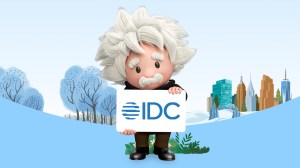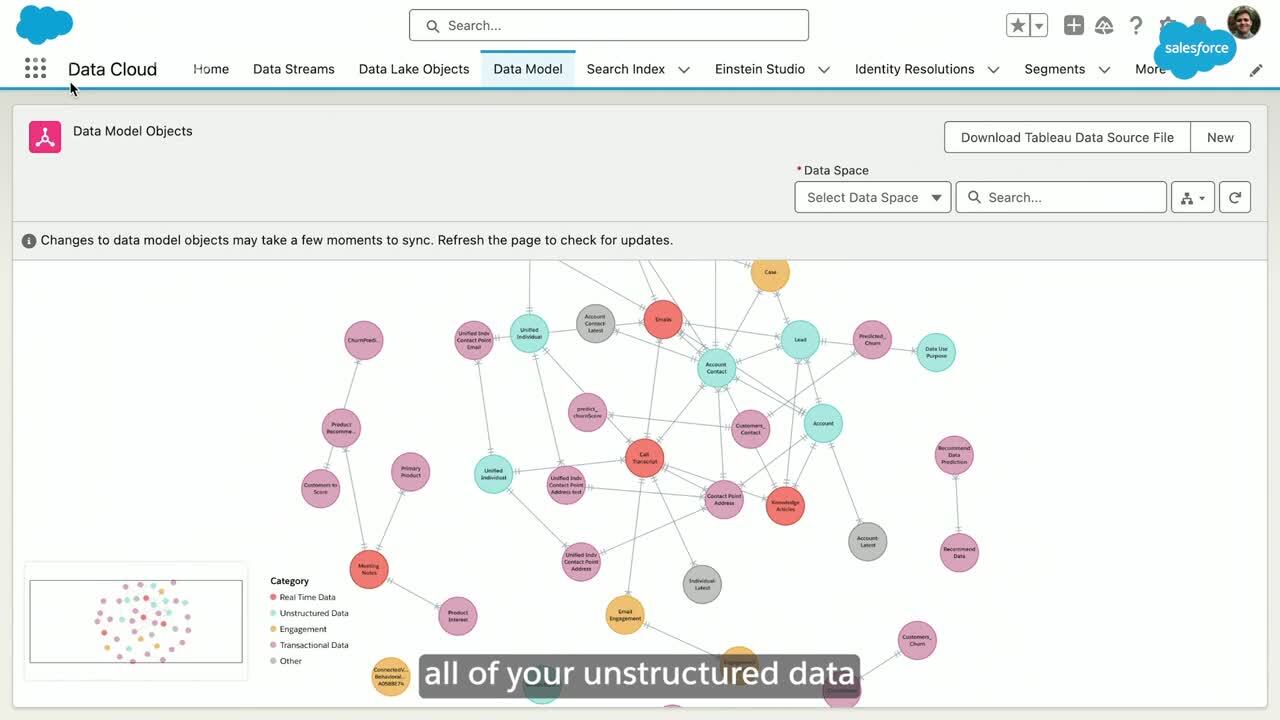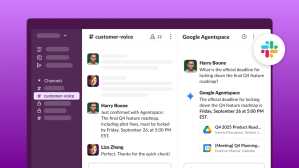According to a new IDC study, the Salesforce economy is expanding — and AI is accelerating its growth trajectory.
Aided by AI, the Salesforce economy — the impact of Salesforce and its network of partners on the overall economy — will generate more than $2 trillion in net new business revenues between 2022 and 2028, at a faster growth rate than previously predicted.
The Salesforce economy’s impact extends to the global workforce: The report also estimates a net gain of more than 11 million jobs between 2022 and 2028 as AI-powered solutions proliferate.
Why it matters: While AI has been around for decades, its expanded use in the last 12 months isn’t just reshaping productivity and customer experiences: it’s creating new economic opportunities for businesses of all sizes.
- “AI’s influence on how we live, how we work, and how we learn is growing, and it will only become more prevalent in the coming years,” said Salesforce President and Chief Legal Officer Sabastian Niles.
What’s new:
- The global business revenue impact of Salesforce AI-powered cloud solutions was $312 billion in 2022; this is expected to triple to $948 billion in 2028 alone.
- Overall, Salesforce’s AI-driven cloud solutions are expected to generate a net gain of $2.02 trillion in business revenue impact between 2022 and 2028.
- IDC’s updated methodology reflects the positive influence of AI-powered clouds on its compound annual growth rate (CAGR) of 20.30% in 2023. For context, the Salesforce Economy CAGR was 19.60% in 2021 and did not factor in AI-powered clouds.
Go deeper: Tapping into this growth will require organizations to focus on their AI strategies to help evolve hiring strategies, benefit worker productivity, and create a better customer experience. Critically, they must also better tap into, manage, and control their first-party data.
- According to IDC, “To realize the full impact and value of traditional AI and GenAI, organizations need to leverage enterprise data in unique ways to grow and transform current business processes and experiences.”
To realize the full impact and value of traditional AI and GenAI, organizations need to leverage enterprise data in unique ways to grow and transform current business processes and experiences.
Impact of partners: IDC’s research also reveals the pivotal — and growing — role of Salesforce partner apps and experts for a fully functional AI deployment. IDC’s findings show that Salesforce’s AI-powered solutions are expanding the bounds of economic opportunity.
- Users of AI-powered cloud solutions say the following services were crucial to their implementation, in addition to a basic cloud subscription: IT project consulting or systems integration (52%), additional cloud services (51%), IT training (50%), IT managed services (46%), and business consulting (36%).
The Biggest News from World Tour NYC
Impact of jobs: IDC’s predictions address the widespread narrative of AI as a job threat head-on.
- Catalyzing job growth: IDC estimates that Salesforce’s AI-powered cloud solutions will generate 11.6 million jobs between 2022 and 2028, 4.7 million of which are directly within the Salesforce customer base from the use of Salesforce and its partners cloud services.
- Benefitting worker productivity today: 45% of workers say AI helps them do their jobs better and 42% say AI reduces repetitive tasks.
- Changing the workforce: 82% of companies surveyed expect AI to change the workforce itself.
- Expanding data support: Companies are already shifting their hiring strategies to take advantage of AI, increasing hiring in data-centric roles such as data engineers (50%), business analysts (43%), AI solutions architects (41%), data architects (39%), and data scientists (36%).
- Growing demand for AI ethics roles: Looking ahead, the top three AI roles companies plan to hire in the next year include data architects (50%), AI ethicists (43%), and AI solutions architects (41%).
Go deeper:
- Read the full IDC whitepaper
- Check out Salesforce’s AI solutions
- Learn more about the Salesforce partner ecosystem
- To find out who is hiring in the Salesforce ecosystem, visit the Trailblazer Career Marketplace on Trailhead
The Salesforce AI-Powered Cloud Applications Economy
As a major vendor of cloud services and AI-powered cloud applications, Salesforce accounts for an important share of the benefits to the general economy from AI-powered cloud computing. IDC defines “The Salesforce Economy” as the footprint of Salesforce and its partner ecosystem on the economy at large. This includes the revenues and jobs directly generated in the Salesforce customer base from the use of Salesforce and its partners’ AI-powered cloud services, as well as jobs created indirectly in the economy by local spending by direct employees and Salesforce and its partners themselves.
IDC Methodology
The Salesforce Economic Impact Model is an extension to IDC’s IT Economic Impact Model. It estimates Salesforce’s current and future share of the benefits to the general economy generated by AI-powered cloud computing, including the size of the ecosystem supporting Salesforce using IDC’s existing market research, and informed by current survey data.
Advances in artificial intelligence have made an important impact on global businesses, so IDC’s 2023 methodology was updated to reflect the influence of AI-powered cloud computing. Moreover, the model has been improved through the application of a standard analytical framework, known as an Economic Impact Analysis, which leverages input-output (I/O) tables, using the most updated input-output official tables of a specific economy.
This methodology evaluates three types of impact for economic and social variables (GDP and Jobs):
- Direct impact includes all direct effects in terms of jobs and revenues of the organization/tech provider.
- Indirect effect on supply chain and demand includes the effects that the organization/tech provider has on the region or country due to the organization’s operations. The impact is measured in terms of jobs and revenues generated and customers and providers.
- Induced effects: This is the effect induced from the increase in production. It refers to the impact due to economic stimulus coming from increased households’ income. People will spend their wages in the economy, thus generating additional jobs and revenues.


















